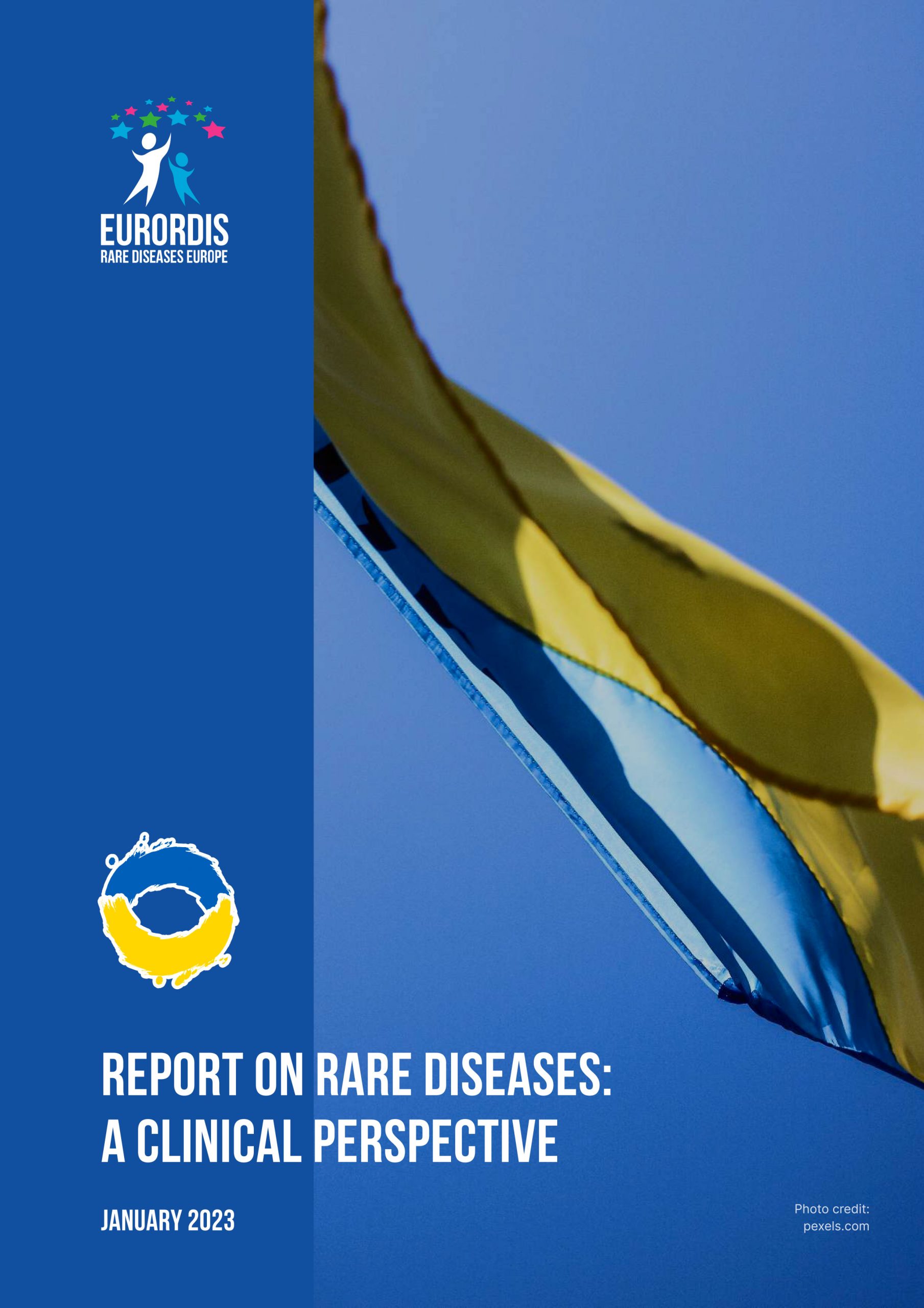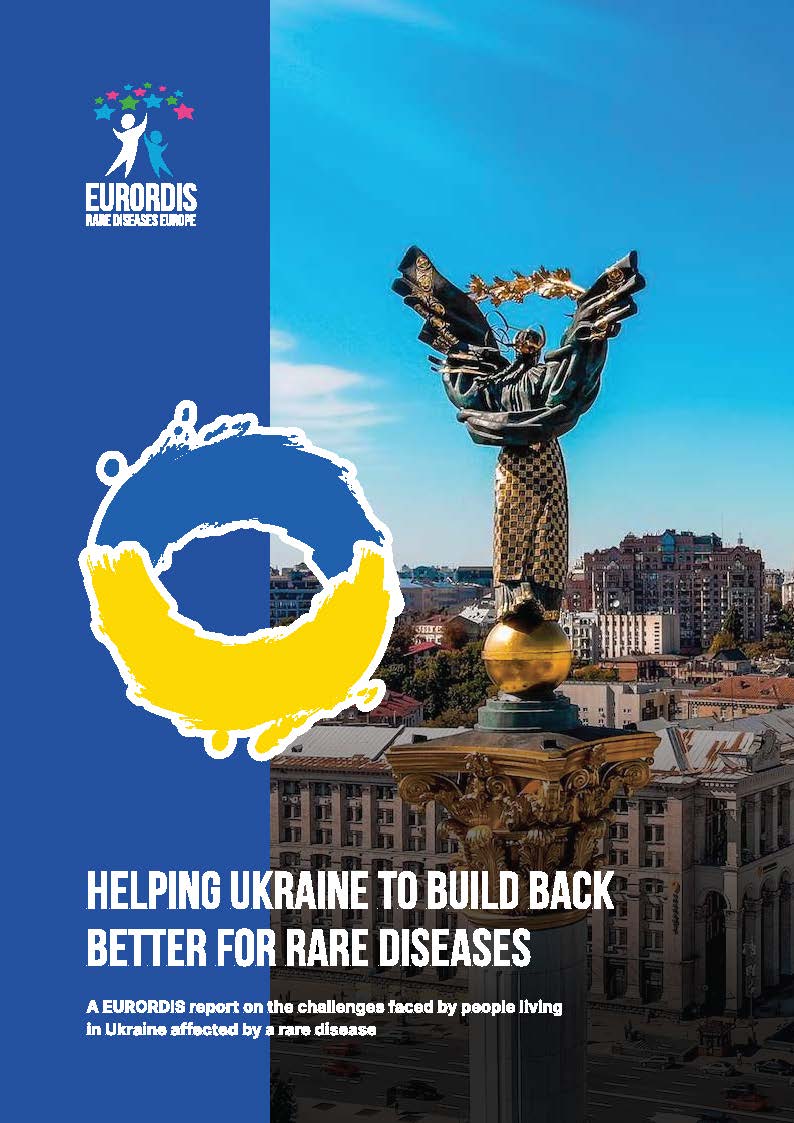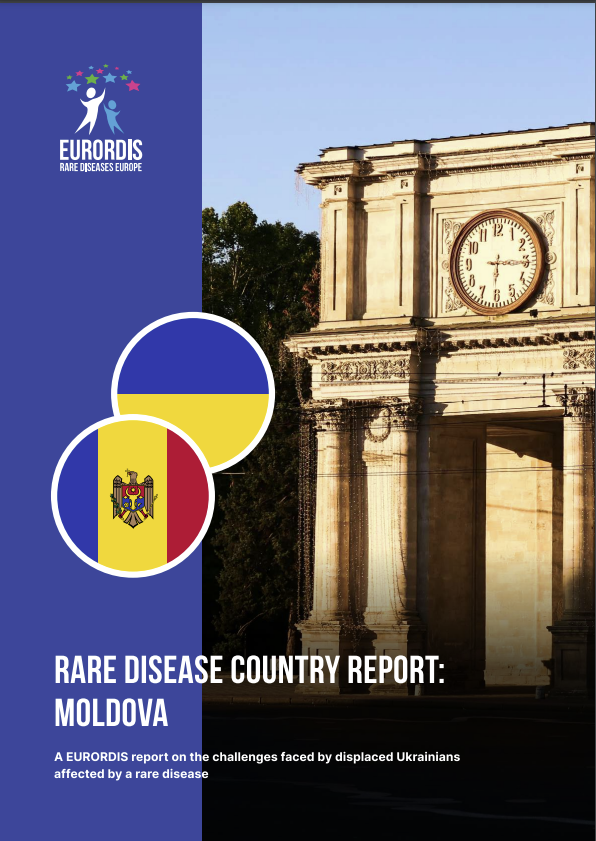Uniting for the two million Ukrainians living with a rare disease
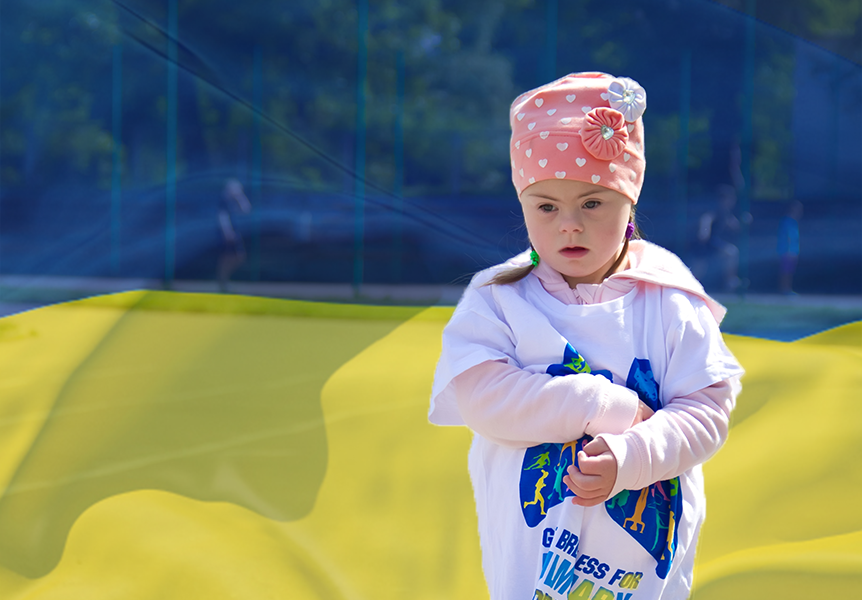
Three weeks into Russia’s invasion of Ukraine, on 15 March, the EURORDIS’ Board of Directors held a meeting to review the situation of the rare disease patient community in the country and set the course of action. The response to this new crisis is at the core of EURORDIS’ mission and values. It is believed that the overall situation might worsen, with many people with rare diseases and their carers being unable to travel to another country or access essential medicines and basic necessities in Ukraine and those who are able to leave the country facing challenges related to displacement.
Across Europe, EURORDIS plays a key role in raising attention to and catalysing support for the 30 million people living with a rare disease. Today, Ukraine is under siege, and it is our shared responsibility to ensure that no person living with a rare disease, whose conditions are often debilitating or need frequent and complex medical attention, is left behind. We need to be pragmatic in our response to this humanitarian emergency situation while already preparing medium- and long-term actions.
Terkel Andersen, President of the Board, EURORDIS-Rare Diseases Europe
EURORDIS’ main activities in regard to Ukraine
1. Working with local patient groups and partners, in particular to support ULWRD to relocate or leave the country
- A partnership between EURORDIS and Airbnb.org was put in place to support the Ukrainian rare disease community in accessing free, short-term housing outside of Ukraine. Overall, more than 300 Ukrainian families were supported by this programme.
- EURORDIS created a Ukraine Resource Centre – in English and Ukrainian – designed to give Ukrainian families information about what services are available for them in what countries.
- Individual requests are being handled and referred to our patient organisations on the ground or placed with relevant healthcare facilities in Europe by the European Reference Networks.
- A set of emergency grants were allocated to patient groups actively supporting ULWRD, including 5 of them who are still in Ukraine.
- Intense cooperation with Ukrainian patient organisations has been set up to intensify the joint work and coordinate our activities through bi-weekly meetings with the most active patient groups. In particular, EURORDIS is supporting Ukraine on its way towards the implementation of the MoH strategic priorities in the field of rare diseases including a renewed collaboration with the Orphanet.
2. Support ULWRDs when arriving as refugees in neighbouring countries and relocating across the EU, through patient networks and partners catalysing new solidarities
- Since the end of February 2022, EURORDIS has been working in close partnership with ERNs to better inform them of the needs of the rare disease community. This activity has evolved into a fully-fledged Virtual Hub tasked to support displaced ULWRD that was initially hosted by SJD Barcelona Children’s Hospital. The Hub has since moved to Kyiv, where it operates with the support of Ukraine’s Ministry of Health, the National specialised children’s hospital “Okhmatdyt”, EURORDIS-Rare Diseases Europe and the European Commission.
- A call for volunteers issued by EURORDIS in early March 2022 gathered a group of motivated professionals who have been heavily involved with patient groups in different countries to translate medical records and arrange the shipment of supplies for ULWRD.
- EURORDIS has been actively involved with patient organisations in bordering countries to help build their capacities to support the displaced ULWRD.
The collaboration of EURORDIS with 14 patient groups in Poland created a Razem z Ukraina (United with Ukraine) project, which helped 1188 Ukrainians leaving with rare diseases and their families during June 2022-May 2023. Please find more information about project activities in the article “Supporting Ukraine’s Rare Disease Community: A Multifaceted Response Amidst Crisis”
3. Inform European, EU-national and Ukrainian authorities of the specific challenges facing ULWRD and advocate for them to address these issues
- EURODIS is organising meetings to share information with patient organisations, companies, the EC and MEPs on the needs and challenges faced by ULWRD.
- EURORDIS is also part of the Supporting Ukraine network of the European Commission.
- Key issues of the rare disease community from Ukraine were highlighted in relevant journals.
- A series of reports on the specific issues in neighbouring countries are available in our library.
- EURORDIS has also conducted and will shortly publish a Rare Barometer survey of over 400 Ukrainians living with a rare disease helping us to understand better their real needs.
4. Liaise with humanitarian organisations to both help solve specific requests for help and to advocate more broadly that they integrate PLWRDs in their response to the crisis
- EURORDIS has held a number of meetings with aid agencies including Médecins Sans Frontières, WHO Health Cluster in Ukraine and numerous branches of the International Red Cross and Red Crescent Movement, where we were able to highlight the specific challenges of the rare disease community and better understand programmes available that could help them.
- Where possible, we connect patient and humanitarian aid organisations in Ukraine and neighbouring countries to deliver a frontline response to Ukrainians living with a rare disease.
How can YOU help Ukrainians living with a rare disease?
As an individual
- Donate to EURORDIS or other organisations directly supporting ULWRD
- Become an Airbnb.org host
- Support displaced Ukrainians in your country
As a decision-maker
- Empower patient organisations and initiatives directly supporting ULWRD
- Include ULWRD in your response by taking into account their complex needs (acceptable housing or transport; expensive medication)
As a pharmaceutical company
- Support the healthcare sector of Ukraine to cover urgent gaps
- Promote more sustainable solutions for the accessibility of your medication
Our work is made possible by support for the EURORDIS Rare Response Fund for Ukraine
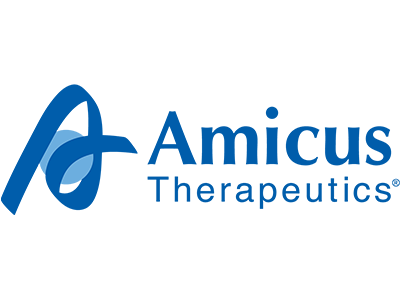
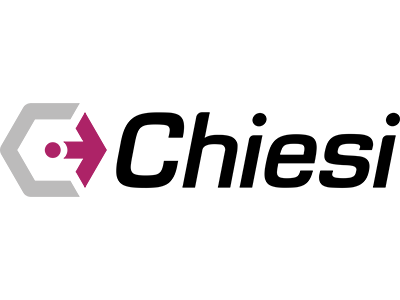
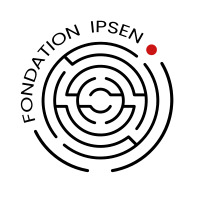


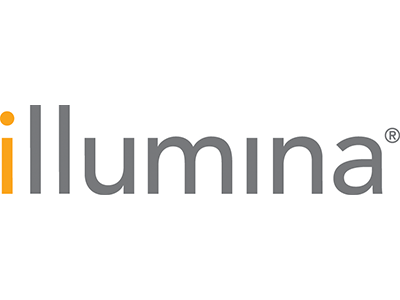
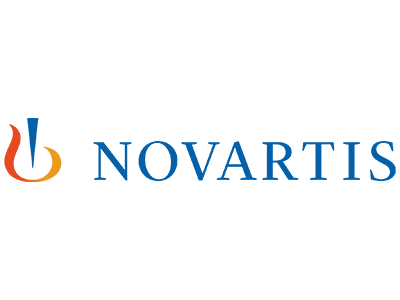



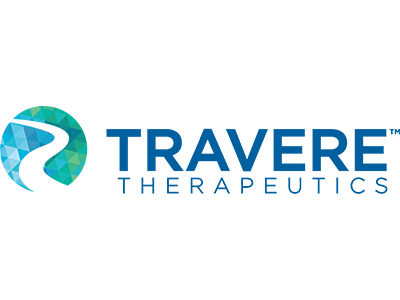
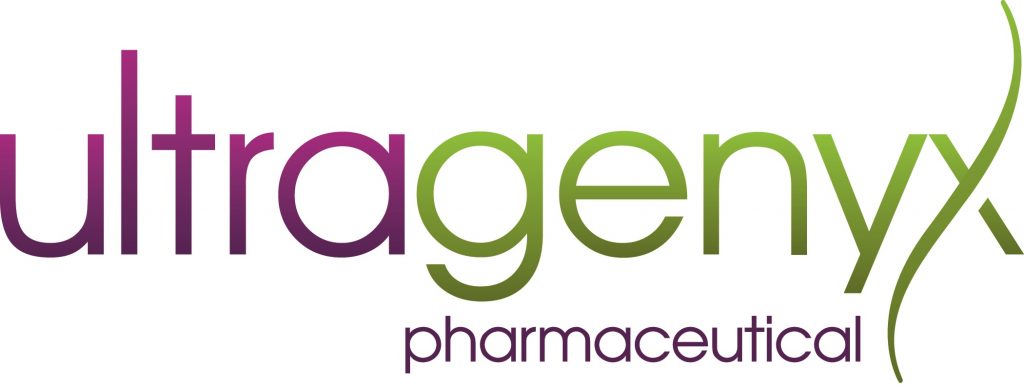
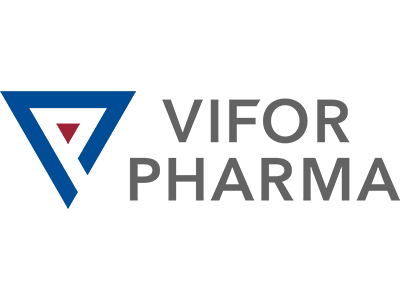
We would also like to sincerely thank all the generous individuals from around the world who contributed in support of the Ukrainian rare disease community.
Podcast episodes
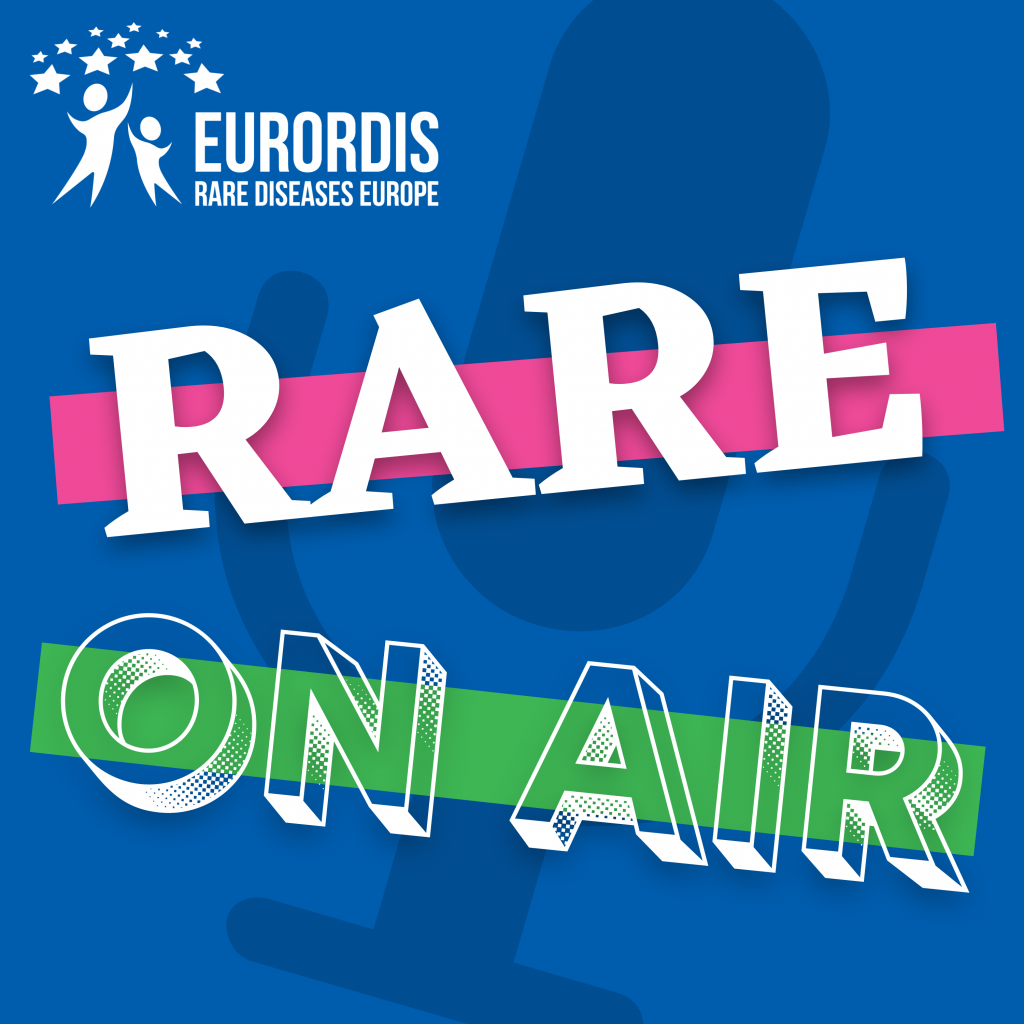
War with a rare disease: Responding to the invasion of Ukraine
One year on from Russia’s full-scale invasion of Ukraine, Julien Poulain, Communications Manager at EURORDIS, speaks to those who have dedicated themselves and their organisations to supporting those Ukrainians living with a rare disease amid the crisis.
Tetiana Kulesha, Chair of the Board of Orphan Diseases of Ukraine, joins the discussion to speak not only of her efforts to support patients impacted by the invasion, but also her efforts to make sure Ukraine keeps striving towards its pre-war goals in rare disease policy. Adrian Goretzki, and Katarzyna Świeczkowska also share how their organisations in neighbouring Poland have been supporting Ukrainians living with a rare disease and their families – both those who have remained in the country and those who have had to flee. Meanwhile, Anastasiia Saliuk, lead for the EURORDIS response to Ukraine, shares her research and findings on the situation for those with a rare condition affected by the invasion.





